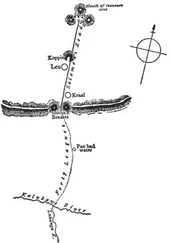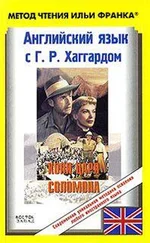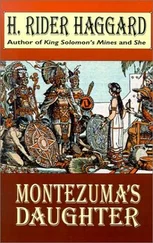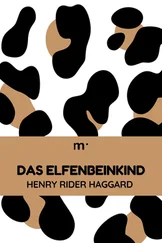Henry Haggard - She
Здесь есть возможность читать онлайн «Henry Haggard - She» весь текст электронной книги совершенно бесплатно (целиком полную версию без сокращений). В некоторых случаях можно слушать аудио, скачать через торрент в формате fb2 и присутствует краткое содержание. Жанр: Прочие приключения, на английском языке. Описание произведения, (предисловие) а так же отзывы посетителей доступны на портале библиотеки ЛибКат.
- Название:She
- Автор:
- Жанр:
- Год:неизвестен
- ISBN:нет данных
- Рейтинг книги:5 / 5. Голосов: 1
-
Избранное:Добавить в избранное
- Отзывы:
-
Ваша оценка:
- 100
- 1
- 2
- 3
- 4
- 5
She: краткое содержание, описание и аннотация
Предлагаем к чтению аннотацию, описание, краткое содержание или предисловие (зависит от того, что написал сам автор книги «She»). Если вы не нашли необходимую информацию о книге — напишите в комментариях, мы постараемся отыскать её.
She — читать онлайн бесплатно полную книгу (весь текст) целиком
Ниже представлен текст книги, разбитый по страницам. Система сохранения места последней прочитанной страницы, позволяет с удобством читать онлайн бесплатно книгу «She», без необходимости каждый раз заново искать на чём Вы остановились. Поставьте закладку, и сможете в любой момент перейти на страницу, на которой закончили чтение.
Интервал:
Закладка:
17
The name of the race Ama-hagger would seem to indicate a curious mingling of races such as might easily have occurred in the neighbourhood of the Zambesi. The prefix “Ama” is common to the Zulu and kindred races, and signifies “people,” while “hagger” is an Arabic word meaning a stone. — Editor .
18
All the linen that the Amahagger wore was taken from the tombs, which accounted for its yellow hue. It was well washed, however, and properly rebleached, it acquired its former snowy whiteness, and was the softest and best linen I ever saw.— L. H. H .
19
Ayesha afterwards showed me the tree from the leaves of which this ancient preservative was manufactured. It is a low bush-like tree, that to this day grows in wonderful plenty upon the sides of the mountains, or rather upon the slopes leading up to the rocky walls. The leaves are long and narrow, a vivid green in colour, but turning a bright red in the autumn, and not unlike those of a laurel in general appearance. They have little smell when green, but if boiled the aromatic odour from them is so strong that one can hardly bear it. The best mixture, however, was made from the roots, and among the people of Kôr there was a law, which Ayesha showed me alluded to on some of the inscriptions, to the effect that on pain of heavy penalties no one under a certain rank was to be embalmed with the drugs prepared from the roots. The object and effect of this was, of course, to preserve the trees from extermination. The sale of the leaves and roots was a Government monopoly, and from it the Kings of Kôr derived a large proportion of their private revenue.— L. H. H .
20
Ayesha was a great chemist, indeed chemistry appears to have been her only amusement and occupation. She had one of the caves fitted up as a laboratory, and, although her appliances were necessarily rude, the results that she attained were, as will become clear in the course of this narrative, sufficiently surprising.— L. H. H .
21
For a long while it puzzled me to know what could have been done with the enormous quantities of rock that must have been dug out of these vast caves; but I afterwards discovered that it was for the most part built into the walls and palaces of Kôr, and also used to line the reservoirs and sewers.— L. H. H .
22
Among the ancient Arabians the power of poetic declamation, either in verse or prose, was held in the highest honour and esteem, and he who excelled in it was known as “Khâteb,” or Orator. Every year a general assembly was held at which the rival poets repeated their compositions, when those poems which were judged to be the best were, so soon as the knowledge and the art of writing became general, inscribed on silk in letters of gold, and publicly exhibited, being known as “Al Modhahabât,” or golden verses. In the poem given above by Mr. Holly, Ayesha evidently followed the traditional poetic manner of her people, which was to embody their thoughts in a series of somewhat disconnected sentences, each remarkable for its beauty and the grace of its expression. — Editor .
23
After some months of consideration of this statement I am bound to confess that I am not quite satisfied of its truth. It is perfectly true that Ayesha committed a murder, but I shrewdly suspect that, were we endowed with the same absolute power, and if we had the same tremendous interest at stake, we would be very apt to do likewise under parallel circumstances. Also, it must be remembered that she looked on it as an execution for disobedience under a system which made the slightest disobedience punishable by death. Putting aside this question of the murder, her evil-doing resolves itself into the expression of views and the acknowledgment of motives which are contrary to our preaching if not to our practice. Now at first sight this might be fairly taken as a proof of an evil nature, but when we come to consider the great antiquity of the individual it becomes doubtful if it was anything more than the natural cynicism which arises from age and bitter experience, and the possession of extraordinary powers of observation. It is a well known fact that very often, putting the period of boyhood out of the question, the older we grow the more cynical and hardened we get; indeed many of us are only saved by timely death from utter moral petrifaction if not moral corruption. No one will deny that a young man is on the average better than an old one, for he is without that experience of the order of things that in certain thoughtful dispositions can hardly fail to produce cynicism, and that disregard of acknowledged methods and established custom which we call evil. Now the oldest man upon the earth was but a babe compared to Ayesha, and the wisest man upon the earth was not one-third as wise. And the fruit of her wisdom was this, that there was but one thing worth living for, and that was Love in its highest sense, and to gain that good thing she was not prepared to stop at trifles. This is really the sum of her evil doings, and it must be remembered, on the other hand, that, whatever may be thought of them, she had some virtues developed to a degree very uncommon in either sex—constancy, for instance.— L. H. H .
24
I regret to say that I was never able to ascertain if She was invulnerable against the ordinary accidents of life. Presumably this was so, else some misadventure would have been sure to put an end to her in the course of so many centuries. True, she offered to let Leo slay her, but very probably this was only an experiment to try his temper and mental attitude towards her. Ayesha never gave way to impulse without some valid object.— L. H. H .
25
In connection with the extraordinary state of preservation of these ruins after so vast a lapse of time—at least six thousand years—it must be remembered that Kôr was not burnt or destroyed by an enemy or an earthquake, but deserted, owing to the action of a terrible plague. Consequently the houses were left unharmed; also the climate of the plain is remarkably fine and dry, and there is very little rain or wind; as a result of which these relics have only to contend against the unaided action of time, that works but slowly upon such massive blocks of masonry. —L. H. H.
26
Billali told me that the Amahagger believe that the site of the city is haunted, and could not be persuaded to enter it upon any consideration. Indeed, I could see that he himself did not at all like doing so, and was only consoled by the reflection that he was under the direct protection of She . It struck Leo and myself as very curious that a people which has no objection to living amongst the dead, with whom their familiarity has perhaps bred contempt, and even using their bodies for purposes of fuel, should be terrified at approaching the habitations that these very departed had occupied when alive. After all, however, it is only a savage inconsistency.— L. H. H .
27
After all we are not much in advance of the Amahagger in these matters. “Mummy,” that is pounded ancient Egyptian, is, I believe, a pigment much used by artists, and especially by those of them who direct their talents to the reproduction of the works of the old masters.— Editor .
28
It will be observed that Ayesha’s account of the death of Kallikrates differs materially from that written on the potsherd by Amenartas. The writing on the sherd says, “Then in her rage did she smite him by her magic , and he died.” We never ascertained which was the correct version, but it will be remembered that the body of Kallikrates had a spear-wound in the breast, which seems conclusive, unless, indeed, it was inflicted after death. Another thing that we never ascertained was how the two women— She and the Egyptian Amenartas—were able to bear the corpse of the man they both loved across the dread gulf and along the shaking spur. What a spectacle the two distracted creatures must have presented in their grief and loveliness as they toiled along that awful place with the dead man between them! Probably however the passage was easier then.— L. H. H .
Читать дальшеИнтервал:
Закладка:
Похожие книги на «She»
Представляем Вашему вниманию похожие книги на «She» списком для выбора. Мы отобрали схожую по названию и смыслу литературу в надежде предоставить читателям больше вариантов отыскать новые, интересные, ещё непрочитанные произведения.
Обсуждение, отзывы о книге «She» и просто собственные мнения читателей. Оставьте ваши комментарии, напишите, что Вы думаете о произведении, его смысле или главных героях. Укажите что конкретно понравилось, а что нет, и почему Вы так считаете.












